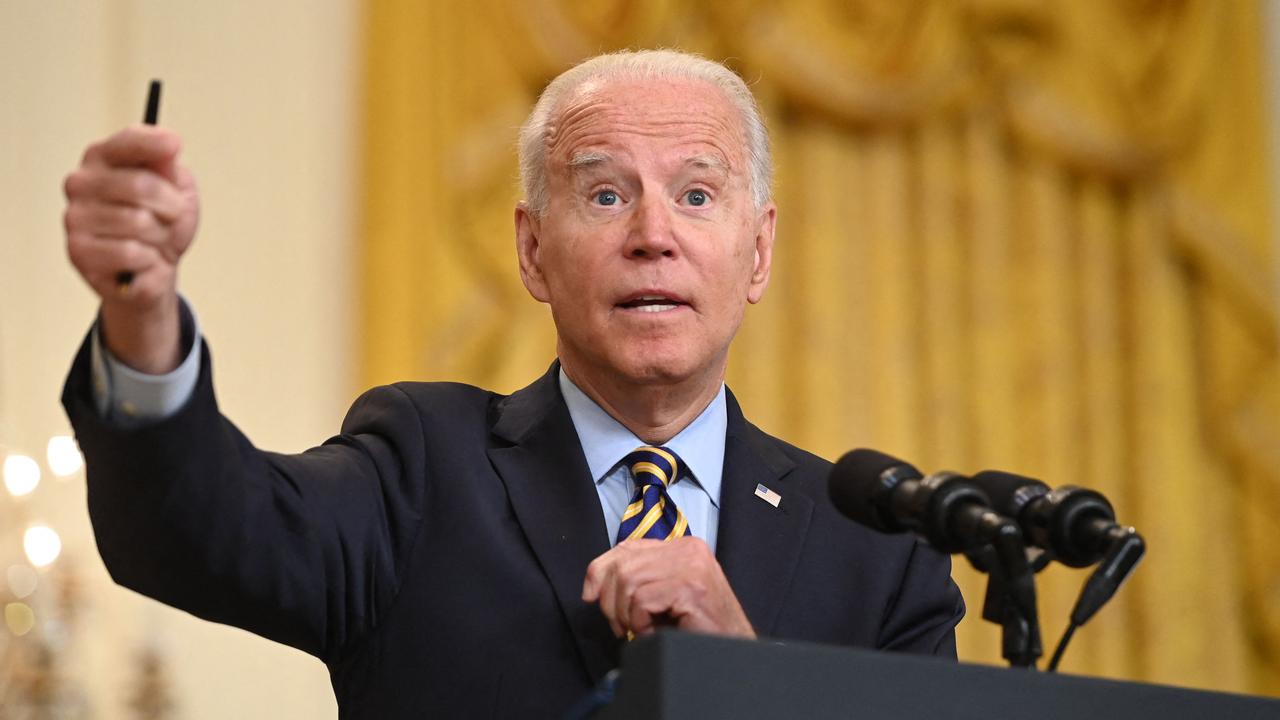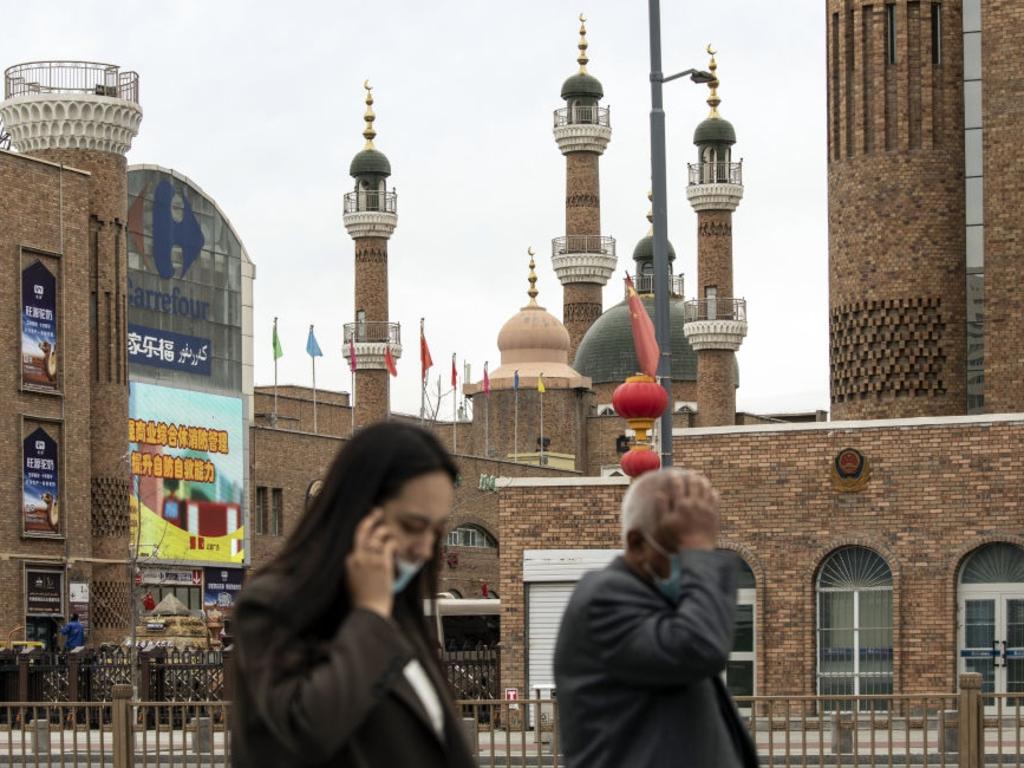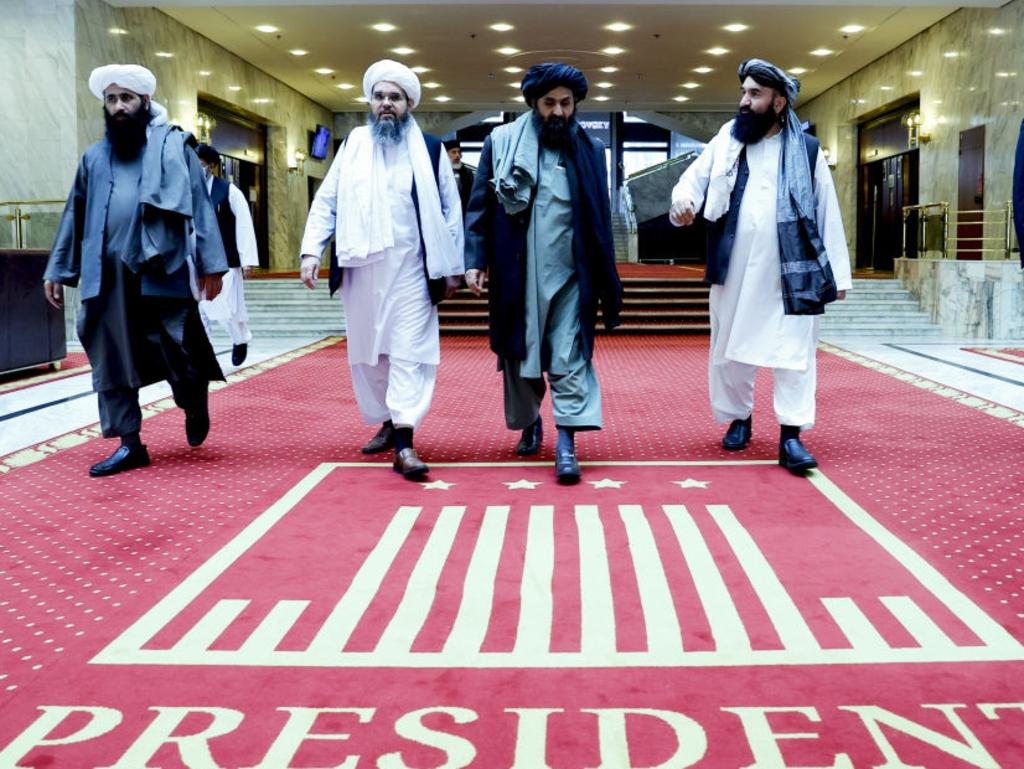Why China’s relationship with the Taliban poses an enormous risk
It’s a dangerous relationship with enormous risk, but there’s a reason both China and the Taliban in Afghanistan want a special relationship.
The Taliban says it sees China as a “friend”. It has assured Beijing it won’t tolerate Uighur separatists. But China has its own problems with Afghanistan.
The future of Afghanistan hangs in the balance. Whichever way it falls will send shockwaves around the world. With US intelligence agencies predicting the Afghan government will collapse within six months, a reckoning is fast approaching.
For China, it presents an enormous opportunity.
The Kabul government needs help. The West won’t provide any more.
And the insurgent Taliban has strong ties with China’s close friend Pakistan.
But it also presents an enormous risk.
RELATED: China moves in of Afghanistan

Uighur insurgents may seize the opportunity to strike back at their oppressors. Islamic jihadists upset at China’s destruction of mosques and “re-education” facilities may unite to free their oppressed neighbours.
But, for the moment, the Islamic fundamentalist Taliban is making conciliatory noises towards the Chinese Communist Party.
It says China is a “friend”. It says it won’t support Uighurs. And Taliban spokesman Suhail Shaheen says it is keen to discuss Belt and Road investment opportunities “as soon as possible”.
“We have been to China many times, and we have good relations with them,” Suhail told the South China Morning Post. “China is a friendly country, and we welcome it for reconstruction and developing Afghanistan.”
RELATED: What is a Belt and Road initiative?

But Beijing is yet to be convinced.
It evacuated 210 nationals out of Kabul last week. And the justification it has been using to crack down on Xinjiang province and the ethnic Uighur population for decades may force it into a tricky corner.
‘Shed blood like rivers …”
Uighur jihadists burst onto the world stage in 2017 with the release of an Islamic State propaganda video.
It showed a Uighur fighter threatening Beijing as he executed an accused informant. The murder was intercut with scenes of Chinese riot police in front of Xinjiang mosques and arresting members of the ethnic minority in city streets.
“Oh, you Chinese who do not understand what people say. We are the soldiers of the Caliphate, and we will come to you to clarify to you with the tongues of our weapons, to shed blood like rivers and avenging the oppressed,” the jihadist warned.
It’s the sum of all Beijing’s fears.
Beijing’s relationship with Afghanistan’s Taliban has always been rocky, mainly because it shelters Uighur independence groups. And its decades-long effort to culturally re-engineer Xinjiang with “Chinese characteristics” has generated a profound resentment that has spilled over into surrounding Islamic states.
Chinese Uighurs and Muslims are not allowed to grow beards, wear headscarves or observe religious festivals such as Ramadan. Up to 10,000 Chinese police have been deployed to cities such as Urumqi to enforce Beijing’s laws. And satellite photos reveal the systematic destruction, or conversion, of holy sites and mosques.
International human rights organisations, the US and the European Union have recently accused the Chinese Communist Party of waging a cultural and ethnic genocide campaign on the ethnic minority.
RELATED: China’s wild threat to ‘bullies’

Disgruntled Turkic Uighurs have been seeking refuge throughout the Middle East for decades. But Pakistan, Turkey and other Islamic Central Asian states have been reluctant to provoke their powerful neighbour. Many have refused to condemn the incarceration of more than a million Uighurs, crackdowns on worship, and cultural heritage destruction.
And that’s fuelling the flames of jihadism across the Middle East.
A new Jihad
Beijing is keeping its options open.
“It is necessary to maintain communication with all parties in Afghanistan, including the Taliban, to monitor their dynamics closely. We should also keep contact with Afghanistan’s neighbours,” Beijing-based international relations professor Zhang Jiadong told the South China Morning Post.
Beijing has offered Kabul security advisers and trainers. It has offered the Taliban “development” money. But Chinese state-controlled media is still openly speculating about deploying military forces to Afghanistan to seal its border.
The cause? Uighur separatists.
Last month, the United Nations’ Analytical Support and Sanctions Monitoring Team reported at least one such group was still active in Afghanistan. “The Eastern Turkistan Islamic Movement (ETIM) consists of several hundred members, located primarily in Badakhshan and neighbouring Afghan provinces,” the report states.
The fundamentalist Uighur militant group seeks to establish an independent Xinjiang, which it calls “east Turkestan”. It’s been working in co-operating with Turkey in Syria’s brutal civil war.
Now, the UN report states, the battle-hardened force is looking east with an “agenda to target Xinjiang, China, and the China-Pakistan Economic Corridor, as well as Chitral, Pakistan, which poses a threat to China, Pakistan and other regional states”.

The Taliban has already seized control of roughly one-third of Afghanistan, moving in as US and NATO troops move out. This territory is centred on the northeastern Badakhshan province, which includes a 100km border with China’s Xinjiang province.
The narrow mountain pass known as the Wakhan Corridor is of strategic importance to Beijing’s Belt and Road economic plans. But it’s also incredibly rough, remote terrain.
Beijing is demanding the Taliban revoke its long-held hospitality towards ETIM insurgents and families in the area. And it’s concerned an Afghan civil war will provide cover for thousands of sympathetic Islamic fighters pushing into Xinjiang.
But, for the moment, Taliban spokesman Suhail appears more concerned about economic revival than religious or ethnic bonds. “If (the Chinese) have investments, of course, we will ensure their safety,” he said.
Risky business
“The Taliban want to show China goodwill,” said Qian Feng, head of research at the National Strategy Institute of Tsinghua University in Beijing told the Wall Street Journal. “They hope that China can play a more important role, especially after America pulls out its troops.”
Afghanistan has been on China’s strategic radar for some time.
It has enormous and unexploited coal, cobalt, copper, gas, gold, lithium and mercury deposits. Chinese state-controlled businesses have already begun to move in. One began drilling oil there in 2011. Others have reserved the right to mine for increasingly scarce copper.
And money talks.
“China does not have a substantive conflict with the Taliban,” Chinese Xinjiang researcher Gu Dingguo adds.
“In future, China can try uniting different groups that are hostile to one another in Afghanistan … in an attempt to secure Chinese interests in the region, such as projects it invests in. Also, we should step up border control and co-operation with the Shanghai Cooperation Organisation to prevent Afghan turmoil spilling over.”
That’s a clear and present danger for the region.
Turkey is home to a large ethnic Uighur population. Many of them are refugees from Xinjiang.
And Ankara has been talking of deploying more troops to Afghanistan to protect the Kabul airport in particular.
This puts the Taliban in a bind.
“If foreign forces want to retain a military presence here in the name of airport security, Afghans will not allow it and will view them as invaders, be it Turkey or any other country,” Taliban spokesman Zabihullah Mujahid warned last month.

But the fundamentalist Islamic organisation is keen to avert criticism from its Muslim allies.
“We care about the oppression of Muslims, be it in Palestine, in Myanmar, or China, and we care about the oppression of non-Muslims anywhere in the world. But what we are not going to do is interfere in China’s internal affairs,” a Qatar-based Taliban official last week. “If there are some problems with the Muslims, of course, we will talk with the Chinese government.”
Jamie Seidel is a freelance writer | @JamieSeidel




